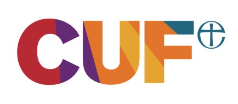Father Jacques and Opposing Hate
Date Posted: Feb 08, 2020.
Yet another terrible act of hate has left us all troubled and disturbed. As a priest, I can identify with Father Jacques and I am left shuddering that the Eucharist, this liturgical act of liberation and equality, has been desecrated in such a way.
France, with Germany, has certainly suffered in recent months. Seven rampages with a knife, five mass shootings and four deliberate attacks on innocent people with a vehicle. Of course we show our solidarity, but we cannot perhaps, stop ourselves wondering whether it will soon be our turn.
I have come to recognise that events like this leave me with three distinct feelings.
First there is fear. At some deep level I find myself identifying with those who have been attacked and as a parent in particular I wonder how I would feel if it were one of my own children who had been murdered. Fear is corrosive, it reduces our capacity to reason and shifts our responses from our head to our guts.
WHEN I HAVE FEELINGS AS STRONG AS THESE I NEED TO PRAY AND REFLECT BEFORE I ACT.
Second there is a nagging despair and a general sense of upset. How can it have come to this, how can things have gone so wrong in our world that this sort of behaviour becomes a regular occurrence? Not so long ago terrorism was about hijacking and kidnapping; now the spiral of violence seems to be out of control. Now it’s the cold blooded murder of children on their holidays or the beheading of a priest saying mass. Why do we live in a world like this and where will it end?
Finally, I have a barely controlled sense of rage, as I write now it leaves me trembling. How can we let this go on – we should respond overwhelmingly and definitively. Surely a just response to this sort of violence is retaliation?
I have learnt though, after 25 years as a priest, that when I have feelings as strong as these I need to pray and reflect before I act. Acting hastily may simply make matters worse and add to the spiral of hate which seems already to be out of control.
Of course we ask ourselves the question, why? This is a difficult question and there are multiple answers. On one level it’s about personal identity and the damage that can be done to the human personality so that this sort of behaviour becomes permissible. It’s a question of politics and particularly political history and the complex relationships between nations. It’s also a religious question about loss of meaning and alienation, and how faith can be shaped in ways which legitimise violence. There are no simple answers to the question of why.
What is clear however, is that there is premeditated intent behind these actions. These acts are deliberately intended to stir up hate and set us against our neighbours both in our towns and cities, but also globally to raise levels of suspicion and mistrust. In this case they want to set us against our Muslim neighbours, to criminalise Islam in the hope that they can recruit more people to their cause.
They are aiming deliberately and strategically to get me to react with fear, despair and rage so that I will be drawn into their circle of hate. But you know what? I’m not going to do it. If my solidarity with Father Jacques means anything, it means that I am not going to allow this situation to add to the spiral of hate. I’m going to talk to a Muslim friend and engage in a conversation where I ask them how they are and I build some solidarity. The antidote to this agenda of hate is really about how we nurture our relationships as human beings.
If you wanted to reduce Christianity to two principles, for me, the two you would have to choose would be freedom and equality. The Eucharist that Father Jacques was celebrating is a living symbol of the power of liberation that these people want to destroy. It is a liturgical recognition that we do not need to be constrained or driven by our fears; we can actively make a choice for love. Ultimately the universe was created for exactly this sort of freedom.
The Eucharist is also a celebration of equal worth. Notwithstanding the rules the church has put around it, it is an invitation to this liberation which is free and open to all. Relationships and mutual respect and love are made sacred and everyone no matter who they are or what they have done are welcome to be present.
Finally the Eucharist is a sacrifice. It’s a giving of ourselves, all of our efforts and even our very lives are given in the service of this freedom and equality. As a priest, Father Jacques has over 60 years of offering himself to God and his neighbour. His sacrifice must not be in vain. We must not let it add to the spiral of hate, but rather see it in the service of liberation and the sacred value of all human life. The Eucharist is primarily about the sacrifice of Christ - his life given for our freedom. Fr. Jacques' life and especially his death is given meaning only if we enable it to be for freedom from fear and hate.
Actually it’s not just the sacrifice of Father Jacques it’s a sacrifice for all of us. We have to take seriously our fears, our distress and our anger but we need to shape them to a positive response which reverses the spiral of violence and builds the mutual respect and regard that is all that will in the end make the change we want to see – what we might call love of our neighbour.
With that, I’m off to see whether Ali wants a coffee and a chat.
